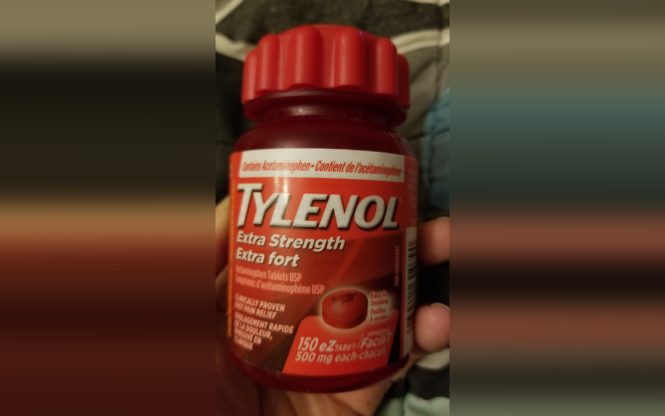

The frustration of supplements that taste awful or are hard to swallow is a common concern for many individuals seeking to improve their health and well-being. These supplements often hold potential benefits but can become a significant hurdle, deterring consistent intake. This article delves into the reasons behind this frustration and offers practical solutions to improve the supplement experience. This includes identifying different factors contributing to the problem, evaluating various options for palatable alternatives, and ultimately, finding strategies to keep you motivated and consistent. We will cover strategies for overcoming the challenges of taste and swallowing, explore different supplement forms, and provide guidance to help make your supplement journey more enjoyable and effective.
Understanding the Problem
The Role of Taste and Texture in Supplement Intake
Many individuals experience difficulty with supplement intake due to unpleasant tastes and textures. The bitter, chalky, or otherwise unappealing flavors of certain supplements can make it hard to finish the recommended dose, leading to inconsistent intake and potentially hindering the desired health benefits. The feeling of swallowing large pills or capsules can also be unpleasant and intimidating. The physical act of swallowing itself can be unpleasant for some individuals due to the size of the pills or the texture of the supplement itself. Furthermore, the taste and texture of the product itself directly impact the individual’s willingness to take it daily. This is particularly true for children and adults alike. The difficulty of the act of swallowing pills or capsules can easily deter someone from taking them regularly. The combination of taste and texture significantly influences an individual’s willingness to consistently take their supplements.
Common Types of Unpleasant Supplements
Supplements that contain iron, minerals, or certain vitamins often have a particularly strong and unpleasant taste or texture. Multivitamins can sometimes pose the same difficulty, often because of the mix of ingredients used. For people who are trying to get a wide range of nutrients in one product, multivitamins can be a helpful tool. The difficulty in taking them is sometimes due to the volume and consistency of the supplements. Other factors that influence taste include the specific ingredients or formulations used, and the manufacturing process itself. Poor manufacturing practices or insufficient processing techniques could also be a contributing factor. Ultimately, many factors contribute to the overall unpleasant experience when it comes to supplements, particularly with their taste and texture.
Improving Palatability
Alternative Supplement Forms
Many supplements are available in alternative forms, such as chewable tablets, gummies, or liquid drops. These options often mask unpleasant tastes and textures. Chewable tablets can be a good option as they dissolve in the mouth before being swallowed, eliminating the need to swallow a large pill. Gummies are particularly popular for their appealing flavors and textures, making them ideal for children and those who dislike the taste of traditional supplements. Liquid drops, which dissolve easily in water or juice, provide a convenient way to consume vitamins and minerals.
Strategies for Swallowing
Techniques to Enhance Swallowing
Taking supplements with a full glass of water can aid in the swallowing process. Drinking plenty of water throughout the day can also help to improve overall digestive health, which in turn may aid in better absorption of nutrients. Using a straw to take supplements in liquid form could also enhance the ingestion process. This allows for the liquid to be easily swallowed in smaller quantities, lessening the overall discomfort.
Building Consistency
The Importance of Routine
Establishing a consistent supplement schedule can greatly improve adherence to the regimen. Taking the supplements at the same time every day, preferably around mealtimes or with water, may encourage better routine and help the body adjust to the supplements. Keeping a daily log or utilizing an app for daily reminders can aid in maintaining consistency. Integrating supplements into a healthy lifestyle including a well-rounded diet and regular exercise can help to support the positive impacts of the supplements. Understanding how the supplements can support overall well-being may further encourage consistent use.
Seeking Professional Guidance
Consulting Healthcare Professionals
Consulting a healthcare professional or registered dietitian can provide personalized advice and recommendations for supplements based on individual needs and health conditions. They can help in selecting the appropriate supplements, determining the optimal dosage, and addressing any potential concerns related to their use. A healthcare professional can also help to identify any potential side effects, and provide guidance on how to best incorporate the supplements into the daily routine.
Frequently Asked Questions
What are some common reasons why supplements taste bad or are hard to swallow?
Many factors contribute to the unpleasant experience of certain supplements. Some supplements may contain ingredients with strong tastes or textures that can be challenging to mask, which includes the specific ingredients, formulations, and manufacturing processes. The formulation and manufacturing process may also have an impact on the taste and texture of the supplement. Often, supplements must be taken in large doses to have an impact, making the process of swallowing the product even more difficult. The sheer size and shape of the pill or capsule can also be a contributing factor to a negative experience. Ultimately, these issues can make it difficult to maintain a consistent intake schedule for achieving desired health benefits.
How can I make supplements more palatable?
There are several strategies to make supplements more palatable. Switching to alternative forms like chewable tablets, gummies, or liquid drops can help mask unpleasant tastes and textures. Taking supplements with a full glass of water or juice can improve the swallowing process. Using a straw, particularly for liquid supplements, can make the intake easier. You can also experiment with different foods to help improve the taste, or add the supplements to food or liquids. Remember to consult a healthcare professional for personalized advice on improving the palatability of supplements, or to identify the best way to address specific concerns.
In conclusion, the frustration of taking awful-tasting or difficult-to-swallow supplements is a widespread problem, impacting many individuals’ health journeys. This article explored the causes, symptoms, and potential solutions to this common challenge. By understanding the underlying issues and implementing practical strategies, you can navigate these obstacles and potentially enhance your supplement experience. For personalized advice, consider consulting a healthcare professional or registered dietitian. Remember, consistency is key to achieving your health goals, and overcoming these initial hurdles is a crucial step towards long-term success.